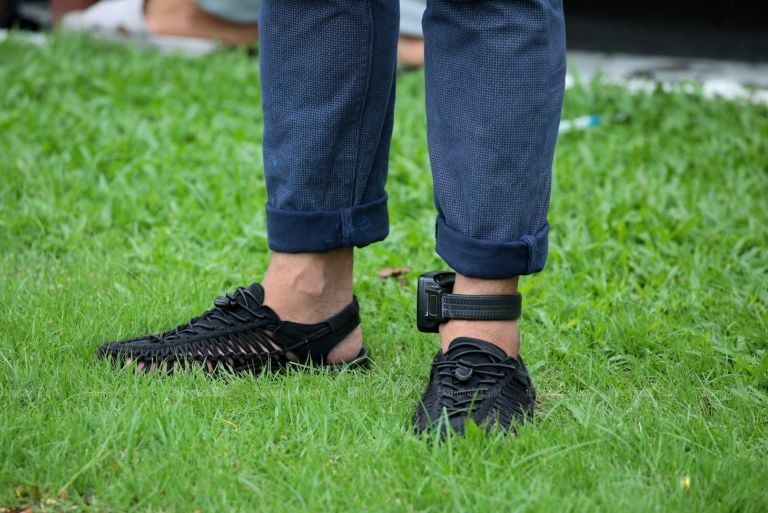Justice goes home: Political suspects to get ‘house-cuffs’

The Ministry of Justice is set to amend the regulations to allow suspects in political cases to be detained at home pending trial, provided they wear electronic ankle monitoring (EM) bracelets.
In a recent announcement by Justice Minister Tawee Sodsong, the ministry is currently reviewing Section 89/1 of a ministerial regulation to empower courts with the discretion to opt for home detention over imprisonment for suspects in political cases. Tawee emphasised the principle of upholding the suspect’s innocence until proven guilty.
“If the proposed amendment is approved, suspects in such cases could be detained in their homes instead.”
Currently, there are 25 cases involving Section 112 of the Criminal Code, known as the lese-majeste law, where suspects are either awaiting trial or appealing convictions while being denied bail. A conviction under Section 112 carries a sentence ranging from three to 15 years. Courts often deny bail, citing the severity of the offence.
The justice minister also highlighted that expanding the use of electronic monitoring aims to alleviate chronic overcrowding in the country’s prisons. Thailand’s prison system, designed to accommodate 180,000 inmates, currently holds 280,000 individuals, with 50,000 awaiting trial.
Tawee announced the plan yesterday following questions from a Move Forward Party MP, Sasinan Thamnithinan, about the ongoing investigation into the death of political activist Netiporn Saneysangkhom, also known as Bung Thalu Wang, who died in custody while on a hunger strike.
Substandard treatment
Sasinan pointed out that Netiporn’s death underscored the substandard treatment of sick detainees by the Department of Corrections.
“How will the department take responsibility? What was the result of the investigation? Will the ministry roll out measures to improve the treatment of detainees?”
Tawee disputed the claim of substandard care, asserting that the department’s treatment of detainees aligns with international standards. In 2023, 750 prisoners died in detention, a figure lower than the average of about 1,000 deaths reported in previous years.
Netiporn’s death not only raised concerns about the treatment of ill detainees but also drew comparisons to the treatment of former prime minister Thaksin Shinawatra before his release on parole. Her death and the hunger strike by two other high-profile activists, Tantawan “Tawan” Tuatulanon and Natthanon “Frank” Chaimahabud, have renewed calls for immediate justice system reforms.
Tantawan and Natthanon face sedition charges related to an incident at a royal motorcade in February. They spent 105 days in prison before being granted bail in late May.
Netiporn was pronounced dead on May 14 despite resuscitation efforts at Thammasat University Hospital. She had been transferred there from the Central Correctional Hospital after suffering a heart attack just after 6am that day.
Netiporn had initiated a hunger strike to protest the detention and prosecution of political activists following last year’s crackdown on anti-government protesters. Despite reportedly resuming food and drink in April, her condition worsened due to pre-existing medical issues, including anaemia and swollen legs, exacerbated by the hunger strike.
Prison officials noted that Netiporn continued to refuse supplements and medication prescribed by doctors to address these conditions, reported Bangkok Post.
Latest Thailand News
Follow The Thaiger on Google News:


























